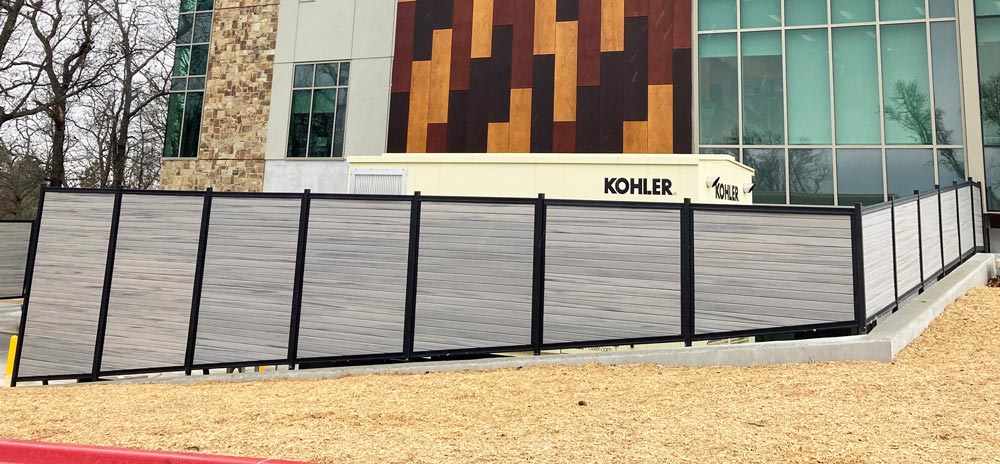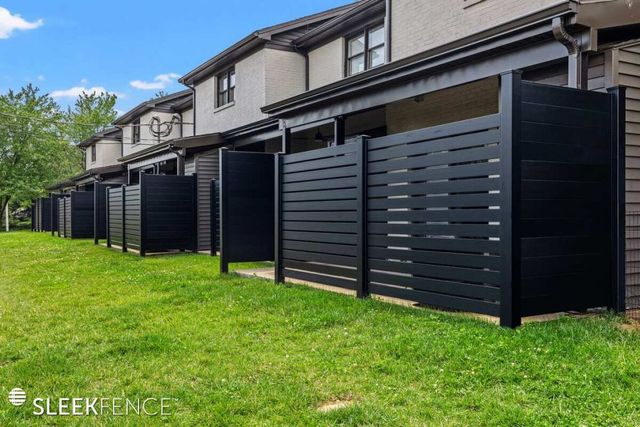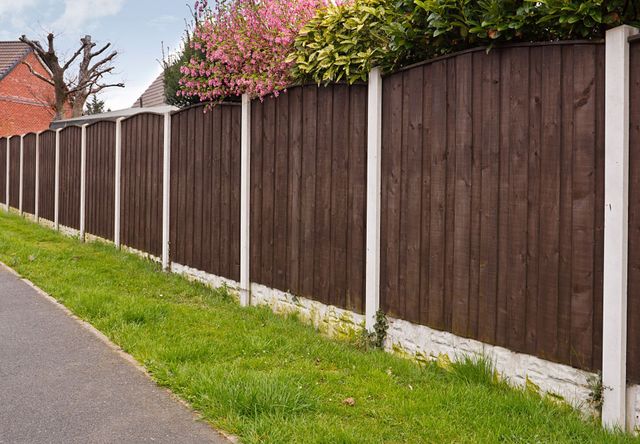All Categories
Featured
If you're taking into consideration installing a fencing around your residential or commercial property, comprehending the license requirements in your area is vital. In this overview, we'll break down the various authorizations you might require to install a fence and exactly how to guarantee your project stays certified with neighborhood laws.
Why Are Permits Essential for Fencing Setup? Licenses are required to make sure that the fence you develop adheres to local building regulations, zoning guidelines, and safety requirements. These permits are in location to safeguard your property, the homes around you, and the setting. They ensure that the fencing will not block energies, traffic flow, or produce dangers for pedestrians. Additionally, they aid keep the structural and aesthetic integrity of your area.
![]()
Kinds of Permits You Might Demand. Building Authorization. A structure permit is the most typical demand for installing a fence. This license ensures that the structure you build adhere to local security codes and guidelines. If your fencing exceeds a particular height (usually around 6 feet), you might need to get a building license. The local authorities will normally assess your plans to make sure that your fence is risk-free and structurally audio.
Zoning Permit. A zoning permit makes certain that your fence conforms with these guidelines. Your fence might need to be established back a particular range from pathways or residential property lines.
Homeowners Organization (HOA) Authorization. You may require authorization prior to mounting a fence if your building is part of a home owners organization. HOAs typically have stringent guidelines pertaining to the type, style, and materials utilized for fences to keep a consistent look throughout the neighborhood. The HOA might need you to submit in-depth plans or demand approval prior to setup. See to it you follow these guidelines to prevent potential penalties or charges.
Specialized Permits. In some instances, you might need specialized permits based upon the location of your building or the nature of your fence. For instance, if your residential or commercial property remains in a disaster area, you may need additional authorizations to guarantee that your fence does not block drainage or water flow. If you plan to develop a fencing near an eco secured location, you might require a special license to comply with ecological regulations.
![]()
Energy Easements and Energy Firm Authorizations. Before mounting a fencing, you need to check if your property has an easement. Constructing a fencing within an easement can interfere with utility upkeep or damages underground lines.
Exactly How to Figure Out Which Permits You Need. Talk To Neighborhood Authorities. The primary step in determining the licenses required is to contact your regional structure department or zoning office. They can offer particular information regarding what authorizations are essential for your area. Numerous cities have on the internet sources or sites where you can check the demands and even request a permit online.
Seek Advice From an Expert Fence Specialist. A local fence specialist is commonly familiar with the permit procedure and local regulations. They can aid you browse the demands and ensure that your project is compliant. Numerous contractors likewise manage the authorization application process in your place, conserving you time and effort.
Testimonial Your Neighborhood's HOA Standards. Make certain to review their guidelines prior to using for any type of permits if you live in a neighborhood governed by an HOA. The HOA might call for certain layouts, materials, or height limitations for fencings within the neighborhood. Submit your plans to them for authorization before continuing.
![]()
Effects of Not Acquiring a License. Mounting a fencing without the called for authorizations can lead to serious repercussions. You may face penalties, be gotten to get rid of the fence, or be required to renovate the installation to meet code needs. Furthermore, selling your home can be complicated if the fence doesn't meet regional regulations. Potential buyers might hesitate to acquire a residential or commercial property with an unpermitted fencing, particularly if it's in offense of zoning regulations.
Verdict. Prior to setting up a fence on your residential or commercial property, make certain you understand the regional laws and obtain any type of necessary permits. Building licenses, zoning licenses, HOA approvals, and specialty permits all play a critical function in making certain that your fencing is secure, legal, and compliant.
Why Are Permits Essential for Fencing Setup? Licenses are required to make sure that the fence you develop adheres to local building regulations, zoning guidelines, and safety requirements. These permits are in location to safeguard your property, the homes around you, and the setting. They ensure that the fencing will not block energies, traffic flow, or produce dangers for pedestrians. Additionally, they aid keep the structural and aesthetic integrity of your area.

Kinds of Permits You Might Demand. Building Authorization. A structure permit is the most typical demand for installing a fence. This license ensures that the structure you build adhere to local security codes and guidelines. If your fencing exceeds a particular height (usually around 6 feet), you might need to get a building license. The local authorities will normally assess your plans to make sure that your fence is risk-free and structurally audio.
Zoning Permit. A zoning permit makes certain that your fence conforms with these guidelines. Your fence might need to be established back a particular range from pathways or residential property lines.
Homeowners Organization (HOA) Authorization. You may require authorization prior to mounting a fence if your building is part of a home owners organization. HOAs typically have stringent guidelines pertaining to the type, style, and materials utilized for fences to keep a consistent look throughout the neighborhood. The HOA might need you to submit in-depth plans or demand approval prior to setup. See to it you follow these guidelines to prevent potential penalties or charges.
Specialized Permits. In some instances, you might need specialized permits based upon the location of your building or the nature of your fence. For instance, if your residential or commercial property remains in a disaster area, you may need additional authorizations to guarantee that your fence does not block drainage or water flow. If you plan to develop a fencing near an eco secured location, you might require a special license to comply with ecological regulations.

Energy Easements and Energy Firm Authorizations. Before mounting a fencing, you need to check if your property has an easement. Constructing a fencing within an easement can interfere with utility upkeep or damages underground lines.
Exactly How to Figure Out Which Permits You Need. Talk To Neighborhood Authorities. The primary step in determining the licenses required is to contact your regional structure department or zoning office. They can offer particular information regarding what authorizations are essential for your area. Numerous cities have on the internet sources or sites where you can check the demands and even request a permit online.
Seek Advice From an Expert Fence Specialist. A local fence specialist is commonly familiar with the permit procedure and local regulations. They can aid you browse the demands and ensure that your project is compliant. Numerous contractors likewise manage the authorization application process in your place, conserving you time and effort.
Testimonial Your Neighborhood's HOA Standards. Make certain to review their guidelines prior to using for any type of permits if you live in a neighborhood governed by an HOA. The HOA might call for certain layouts, materials, or height limitations for fencings within the neighborhood. Submit your plans to them for authorization before continuing.

Effects of Not Acquiring a License. Mounting a fencing without the called for authorizations can lead to serious repercussions. You may face penalties, be gotten to get rid of the fence, or be required to renovate the installation to meet code needs. Furthermore, selling your home can be complicated if the fence doesn't meet regional regulations. Potential buyers might hesitate to acquire a residential or commercial property with an unpermitted fencing, particularly if it's in offense of zoning regulations.
Verdict. Prior to setting up a fence on your residential or commercial property, make certain you understand the regional laws and obtain any type of necessary permits. Building licenses, zoning licenses, HOA approvals, and specialty permits all play a critical function in making certain that your fencing is secure, legal, and compliant.
Latest Posts
Boost Your Home with Overhead Door Equipment
Published May 24, 25
1 min read
Join Your Financial Partner at WyHy – Top Benefits for Your Future
Published May 23, 25
1 min read
Discover Your Financial Partner at WyHy – Top Benefits for Wyoming Residents
Published May 23, 25
1 min read
More
Latest Posts
Boost Your Home with Overhead Door Equipment
Published May 24, 25
1 min read
Join Your Financial Partner at WyHy – Top Benefits for Your Future
Published May 23, 25
1 min read
Discover Your Financial Partner at WyHy – Top Benefits for Wyoming Residents
Published May 23, 25
1 min read